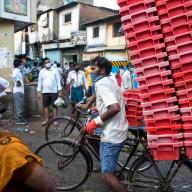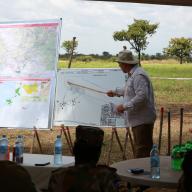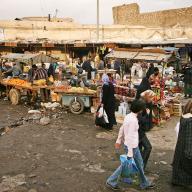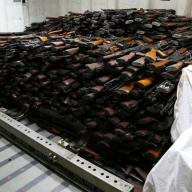This essay draws on research under SIPRI's Environment of Peace initiative and on the authors' own experience.
Related commentary:
Coronavirus shocks to human development and sustaining peace
The pandemic caused by coronavirus disease 2019 (COVID-19) is a massive systemic shock entailing both a public health catastrophe and a profound economic crisis. This blog briefly examines the dual crisis especially as it affects countries of the Global South. The dual crisis lays bare cleavages and structural weaknesses both in individual countries and in the highly interconnected global system. It poses a critical challenge to governments and multilateral institutions to formulate and implement an effective and coherent response.
Connecting the dots on the triple nexus
The concept ‘triple nexus’ is used to capture the interlinkages between the humanitarian, development and peace sectors. Specifically, it refers to attempts in these fields to work together more coherently in order to more effectively meet peoples’ needs, mitigate vulnerabilities and move towards sustainable peace.
The opportunity for local peacebuilding interventions: The case of Kirkuk
SIPRI’s latest Policy Paper ‘Building everyday peace in Kirkuk, Iraq: The potential of locally focused interventions’ provides an understanding of how, when and by whom acts of peace and conflict are carried out at the everyday level, and gives policy recommendations for interventions that would address the local side of peacebuilding. This essay highlights some core areas where there is an opportunity for peacebuilding interventions to affect real change in the everyday lives of Kirkukis.
SDG16.4 and the collection of data on illicit arms flows: Progress made but challenges ahead
This backgrounder provides an overview of ongoing and potential work on measuring states’ achievement of goal 16.4. It begins by outlining the SDG process and how it has sought to overcome the challenges associated with measuring illicit arms flows. It then summarizes the data collection efforts to date and outlines some possible options for filling the gaps that exist.





